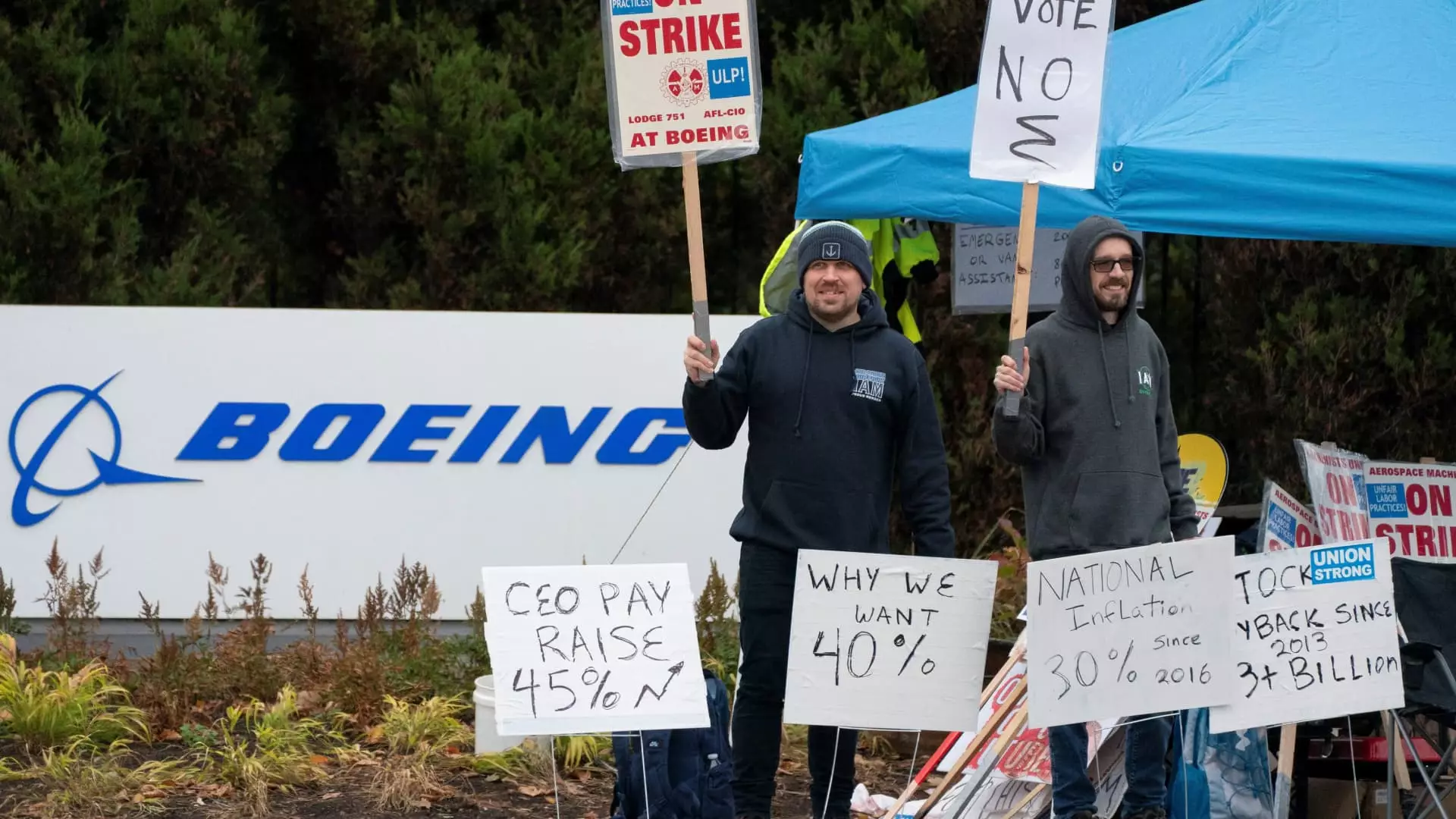In the high-stakes world of aerospace manufacturing, the recent negotiations between Boeing and its machinists’ union signal a critical juncture not just for the company, but for labor relations across the nation. After a protracted strike that lasted seven weeks, which began on September 13, the International Association of Machinists and Aerospace Workers District 751 is urging its members to accept a new contract proposal. The contract includes notable wage increases and a significant one-time bonus, all of which are indicative of the rising tensions between employee compensation and living costs in a market increasingly characterized by competition with tech giants like Amazon and Microsoft. As workers weigh their options, it’s clear that the implications of this decision extend beyond the factory floor.
Central to the new proposal is a staggering 38% wage increase over the next four years, a quantum leap from the previous offer of 35%. When compounded over time, this translates to an increase approaching 44%. Furthermore, the contract provides two paths for a ratification bonus: workers can opt for a one-time payment of $12,000 or select a previous offer of $7,000 alongside a $5,000 contribution to their 401(k) plans. These incentives aim to reconcile the needs of the machinists with the pressing urgency of Boeing’s operational recovery, which is overshadowed by ongoing production challenges and enormous financial losses.
Boeing’s financial situation underscores the necessity for a swift resolution. With losses mounting to more than $6 billion in the last quarter, the company finds itself grappling with the dual pressures of operational disruptions and public scrutiny. The call from Boeing’s CEO, Kelly Ortberg, to focus on rebuilding underscores the urgency of this moment. He highlights the collective dependency on the company, a sentiment echoed by the Biden administration’s involvement in the negotiations. President Biden’s commendation of the machinists reflects a recognition of their sacrifices and the importance of securing a favorable contract that promises improved working conditions and pay.
The strike has not only impacted Boeing’s production capabilities but has also reverberated through the national economy. Job reports reflected significant setbacks attributed to the halted production, eliciting concern about the broader economic implications as the nation approaches critical elections. The strike exemplifies a growing trend in labor movements across various sectors where workers push back against stagnant wages amid rising living costs. The mention of Boeing relocating some of its operations to a non-union factory in South Carolina has further fueled worker dissatisfaction, highlighting the precarious balance between corporate strategy and labor relations.
As the union urges its members to ratify the new proposal, the outcome of the upcoming vote will be instrumental in shaping the future dynamic at Boeing. If the members approve the contract, it will mark a moment of reconciliation and forward momentum for both the company and its workforce. On the other hand, rejection could exacerbate already fragile relations between labor and management, prolonging uncertainty within the aerospace giant.
Moreover, the decision carries implications that transcend Boeing, potentially setting a precedent for other industries navigating similar tensions between worker rights and corporate needs. Balancing these competing interests will be crucial as labor movements continue to gain traction in advocating for fair wages and working conditions.
The current negotiations at Boeing are emblematic of a larger struggle that is enveloping the American workforce. As the machinists consider the latest offer, they are not just faced with immediate practicalities surrounding their pay and working conditions, but are also engaged in a broader discourse on the nature of labor, equity, and corporate responsibility. The upcoming vote represents not just a decision about a contract, but a defining moment in how labor relations will evolve in the coming years as economic conditions continue to shift. The world is watching, and the implications of this moment will echo beyond the factory gates of Boeing, reshaping conversations around work and its value in an age of increasing economic disparity.

